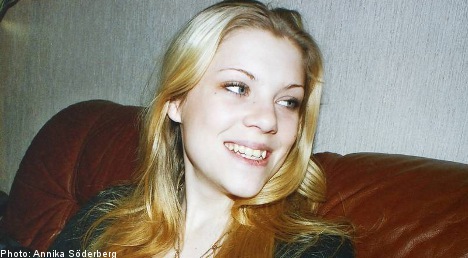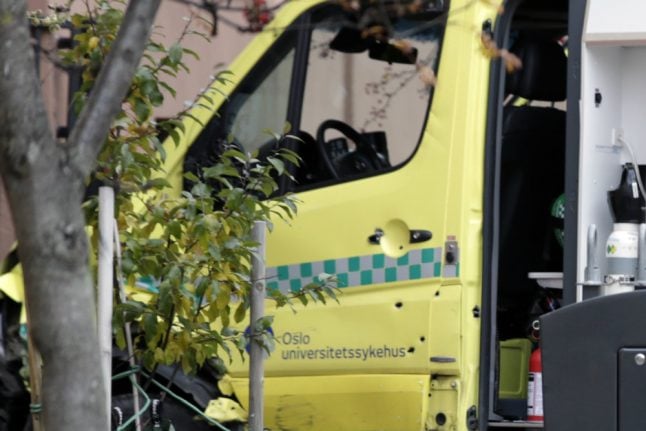Jill Söderberg, 22, came down with a stomach bug after Christmas 2010 that later developed influensa-like symptoms.
Her mother Annika had been having trouble reaching her daughter and on January 27th finally decided to drive by Jill’s apartment in Timrå in northern Sweden.
“I was actually getting annoyed because she hadn’t answered my calls or text messages,” Annika Söderberg told The Local.
“I decided to stop by and drop off a bag of food on my way to work. I hung it on the door and knocked, but she didn’t answer.”
Later that evening, Annika asked Jill’s father to go check on their daughter.
“He found the bag of food still hanging on the door and discovered the door was unlocked. He went in and found Jill lying on the sofa, dead,” said Annika.
What Jill’s family didn’t realise at the time was that their daughter had been lying dead for almost a week.
Annika’s suspicions that her daughter’s death could have been avoided grew stronger when she later found Jill’s mobile phone while cleaning out her apartment.
Looking through the recent calls, Annika discovered that Jill’s last phone call was on January 20th to ambulance operator SOS Alarm.
“The call lasted 15 minutes, and that got me thinking,” she said.
In total, Jill had placed three calls from her mobile phone to SOS Alarm, but to no avail.
Eventually, Annika arranged a meeting with representatives from SOS Alarm during which she was allowed to read transcripts of her Jill’s pleas for an ambulance.
“I can’t breathe,” Jill told emergency operators.
“I want you to come and help me.”
But the operator’s response came as a shock to Jill’s mother.
“The operator considered her to still be communicating verbally and decided that she didn’t need an ambulance,” said Annika.
Jill’s mother pressed SOS Alarm to explain how it was possible to deny someone an ambulance simply because that person was talking.
“How could you even call for an ambulance in the first place?” she asked.
“No one could answer that one.”
After more than six months without any answers as to how her daughter’s pleas for help went unheeded by SOS Alarm, Annika Söderberg last week filed a complaint with Sweden’s National Board of Health and Welfare (Socialstyrelsen).
“A mistake has been made, but exactly where it happened remains to be determined,” she said.
“It shouldn’t have to be like this – that someone isn’t believed when they call for an ambulance.”
Part of the problem with receiving an explanation regarding what happened stems from differing views from SOS Alarm and Västernorrland County health authorities about which agency had ultimate responsibility.
In a statement issued to The Local in June when press reports about the incident first appeared, SOS Alarm’s Klarström explained that, according to an internal investigation into the incident, the company’s operators acted “completely in accordance with instructions” laid out in a contract between SOS Alarm and Västernorrland County health authorities.
According to Klarström, attempts were made to connect the woman to healthcare professionals with a higher level of expertise available from nurses employed by the county in order to make a better assessment of her needs.
Speaking with Expressen newspaper on Tuesday, Lennart Moberg, director of primary care at the Västernorrland County Council said that SOS Alarm still has the overall responsibility for dispatching ambulances.
However, he promised his agency would cooperate with the health board’s investigation.
“We will support the National Board of Health and Welfare and turn over every stone to figure out what went wrong in this case. It’s a deeply tragic incident,” he told the newspaper.
An autopsy attributed Jill’s death to breathing problems caused by her having taken anxiety medication in combination with muscle relaxers. While she had a prescription for the anxiety medication, Jill’s mother isn’t sure where her daughter received the muscle relaxers.
Nevertheless, Annika still agonizes over the fact that her daughter’s accidental mixing of the drugs proved fatal, but that Jill’s death could have possibly been avoided if an ambulance had been sent.
“Nothing is going to bring Jill back, but this can’t happen again,” she said.



 Please whitelist us to continue reading.
Please whitelist us to continue reading.
Member comments